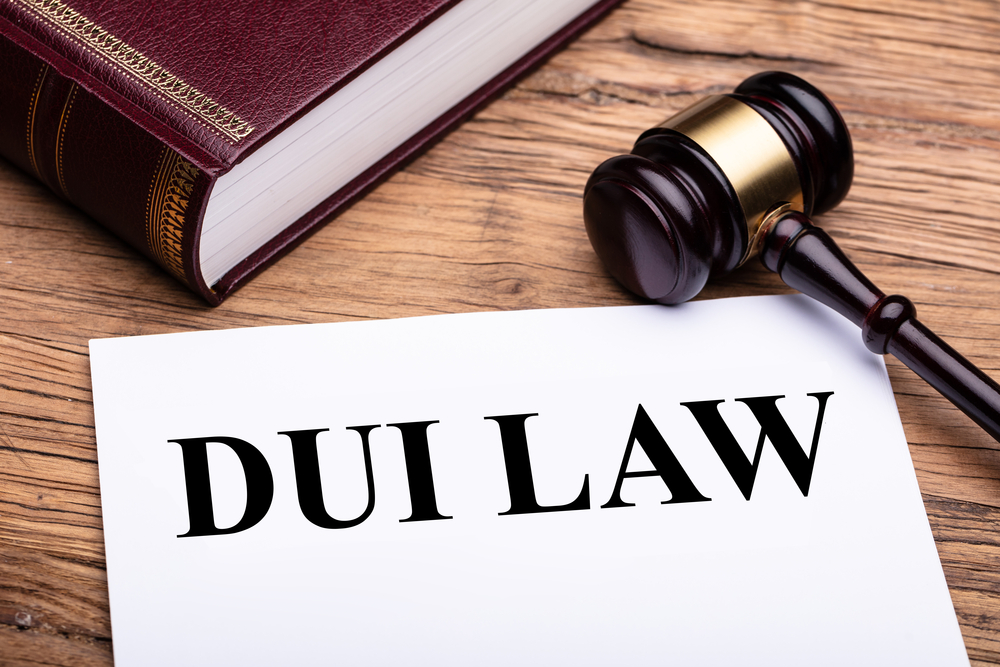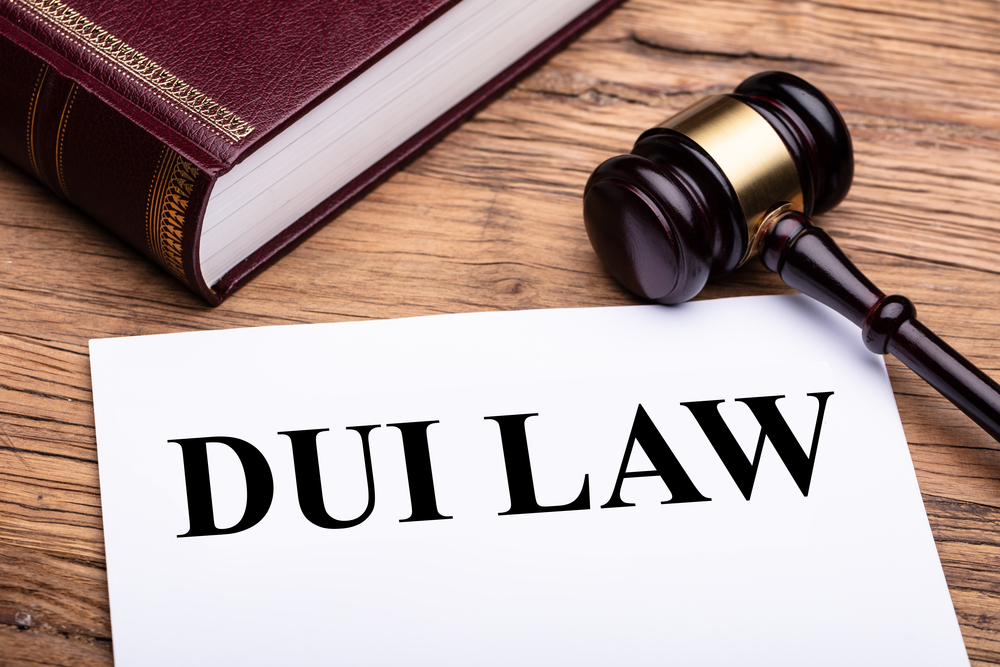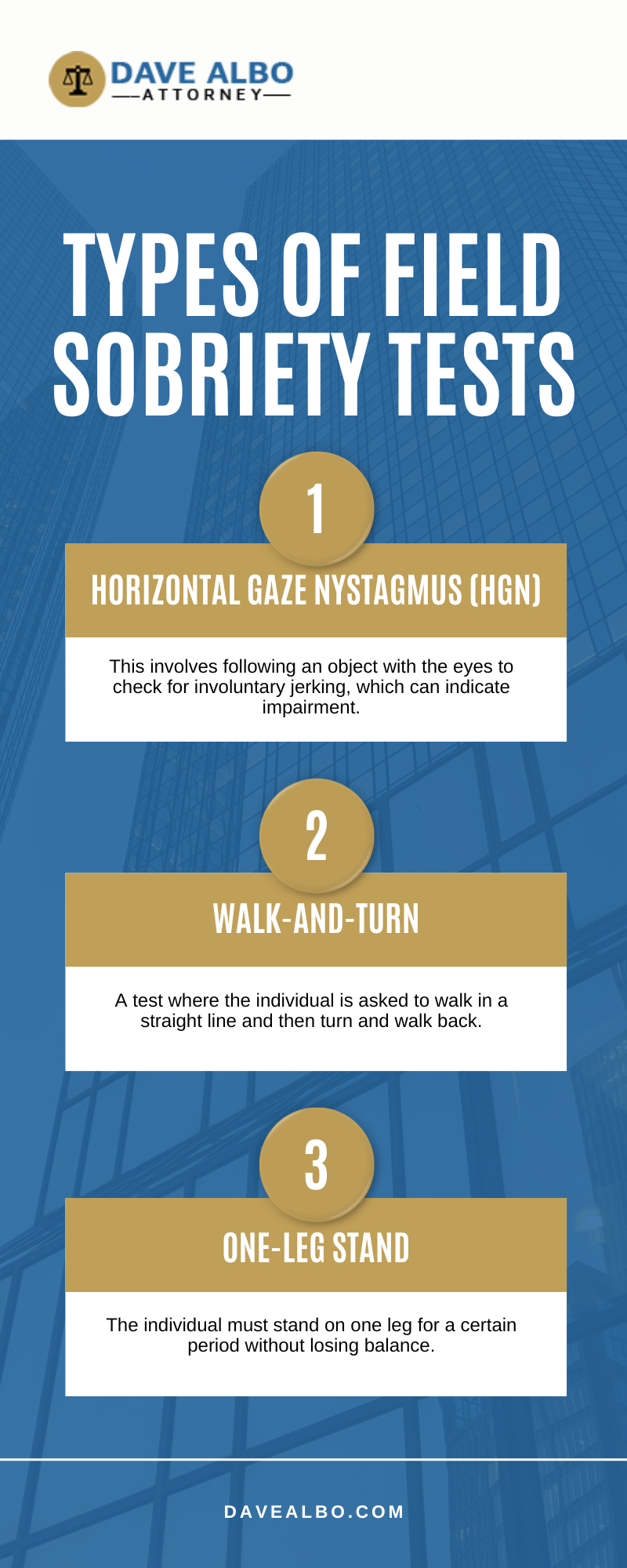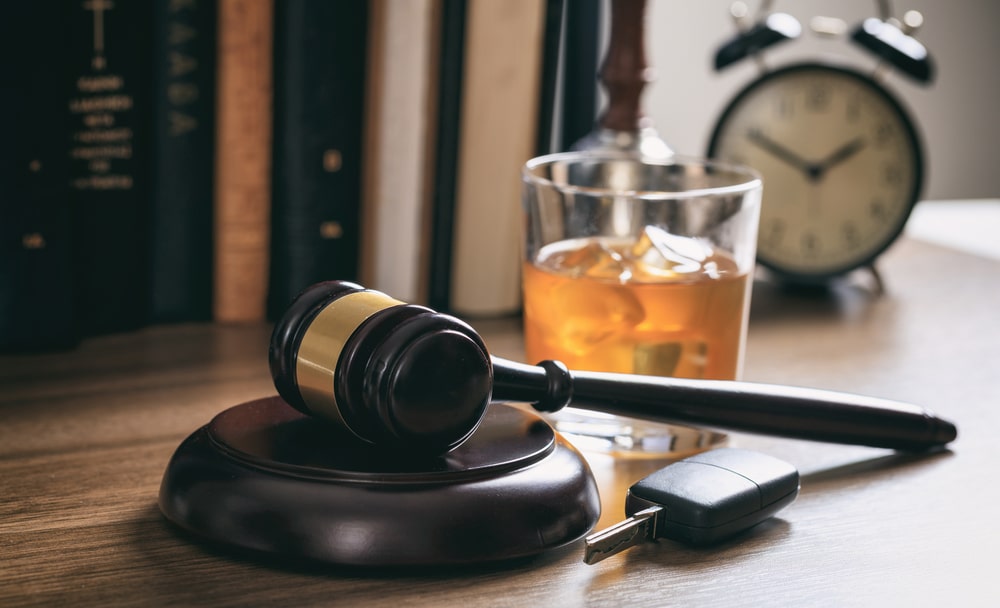Your Fairfax DUI Attorney
Driving Under the Influence (DUI) is a serious offense with significant legal and personal ramifications. Our Fairfax, VA DUI lawyer is here to help you if you have been charged with a DUI. In Fairfax County, Virginia, the penalties for a DUI conviction can be severe. It is important to understand the potential consequences one may face when charged with a DUI, and to seek legal counsel promptly. Our team at Dave Albo – Attorney, has dealt with numerous DUI cases in Fairfax, VA, and we are well-equipped to guide you through the legal process.
Table Of Contents
- Your Fairfax DUI Attorney
- Understanding the Difference Between DUI and DWI
- Understanding BAC and FST: Key Factors in DUI Cases
- The Impacts of a DUI Charge on Your Life
- Fairfax DUI Infographic
- Fairfax DUI Statistics
- Fairfax DUI FAQs
- Dave Albo – Attorney, Fairfax DUI Lawyer
- Contact Our Fairfax DUI Lawyer Today
DUI, which stands for “Driving Under the Influence,” is a serious offense that involves operating a motor vehicle while impaired by alcohol or drugs. This impairment can significantly reduce a driver’s ability to operate a vehicle safely, potentially leading to accidents, injuries, or even fatalities.
In Fairfax, VA, DUI laws are strictly enforced. The legal blood alcohol concentration (BAC) limit is 0.08%. If a driver is found to have a BAC at or above this limit, they can be charged with a DUI. However, even a lower BAC can lead to a DUI charge if it impairs the driver’s ability to operate the vehicle safely. Additionally, drivers under the age of 21 face stricter BAC standards, typically set at 0.02% or lower in many states.
Consequences of a DUI Charge
The consequences of a DUI charge can be severe and long-lasting. These may include hefty fines, license suspension, mandatory alcohol education programs, and even imprisonment. The severity of the penalties often depends on the driver’s BAC level, whether it’s a first or subsequent offense, and if the incident resulted in property damage, injury, or death.
Dealing With the Legal System with a DUI Charge
Facing a DUI charge can be overwhelming. The legal system is complicated, and the stakes are high. It’s vital to have a clear understanding of your constitutional rights and the legal processes involved. This is where the experience of our specialized criminal defense attorney becomes invaluable.
What Our DUI Attorney Can Do For You
Our criminal DUI attorney plays a critical role in managing the legal process. We can examine the circumstances of your arrest, challenge the evidence, negotiate with prosecutors, and represent you in court. Our goal is to minimize the impact of the charge on your life and help you move forward.
As experienced criminal attorneys in DUI law, the criminal defense legal team at Dave Albo – Attorney offers comprehensive legal services. We assess each case individually, providing guidance on the best course of action, whether it’s negotiating a plea deal or taking the case to trial.
Importance of Prompt Legal Advice
If you’re facing a DUI charge, it’s imperative to seek legal advice as soon as possible. Early intervention can make a significant difference in the development of your case. Our team is ready to provide the support and guidance you need during this challenging time.
Understanding the Difference Between DUI and DWI
Driving under the influence (DUI) and driving while intoxicated (DWI) are two terms that are often used interchangeably, but they can have different meanings depending on the state you are in. Understanding the distinction between these two charges is essential especially for individuals facing such charges.
DUI
DUI stands for “Driving Under the Influence.” This term is typically used to describe driving under the influence of alcohol or drugs (including prescription medications) to the extent that it impairs a driver’s ability to operate a vehicle safely. The measurement of impairment is often determined by blood alcohol concentration (BAC), with the legal limit in most states being 0.08%.
DWI
DWI stands for “Driving While Intoxicated” or “Driving While Impaired.” In some states, DWI is used interchangeably with DUI, while in others, it refers to a more severe level of impairment. DWI may indicate a higher BAC than a DUI charge or may include impairment due to substances other than alcohol.
The Legal Distinctions
The distinction between DUI and DWI varies by state. In some states, DWI refers to alcohol impairment only, while DUI includes impairment due to both alcohol and drugs. In others, DWI is reserved for more severe offenses, such as higher BAC levels. It’s essential to understand the specific laws and definitions in your state.
Consequences of DUI and DWI
Both DUI and DWI charges carry serious consequences, which may include fines, license suspension, mandatory alcohol education programs, and possibly jail time. The severity of these consequences typically depends on factors such as the level of impairment, previous offenses, and whether the incident caused injury or property damage.
Taking On DUI and DWI Charges with Legal Help
Facing a DUI or DWI charge can be a daunting experience, filled with legal challenges and significant potential consequences. It’s vital to address these charges with the help of experienced legal professionals.
The Responsibilities of Our Attorney in DUI/DWI Cases
Our skilled criminal defense lawyer can critically assess the details of your case, challenge the evidence presented, negotiate with prosecutors, and represent you effectively in court. Our goal at Dave Albo – Attorney is to minimize the impact of the charge on your life and help you move through the legal system with confidence.
Seeking Legal Advice Early
If you find yourself facing a DUI or DWI charge, seeking legal advice as early as possible is paramount. Early intervention by our Fairfax DUI lawyer can significantly influence the direction and outcome of your case.
At Dave Albo – Attorney, we specialize in handling both DUI and DWI cases. Our team understands the nuances and legal distinctions between these charges and is prepared to provide skilled legal representation. We are committed to protecting your rights and working towards the best possible outcome in your case.
Understanding BAC and FST: Key Factors in DUI Cases
When dealing with DUI (Driving Under the Influence) cases, two critical components often come into play: BAC (Blood Alcohol Concentration) and FST (Field Sobriety Tests). Understanding these elements is important in defending DUI charges and understanding their legal implications.
BAC
BAC stands for Blood Alcohol Concentration, which measures the amount of alcohol in a person’s bloodstream. It is usually expressed as a percentage. For instance, a BAC of 0.08% means that there are 0.08 grams of alcohol per 100 grams of blood. This measurement is critical in DUI cases as it provides a scientific method to determine a person’s level of impairment. In most states, a BAC of 0.08% or higher is considered legally impaired, meaning the individual is unfit to operate a vehicle safely.
BAC is an important indicator in DUI cases for several reasons:
- Legal Standard: It provides a legal threshold for impairment. Driving with a BAC at or above the legal limit is a punishable offense.
- Objective Evidence: BAC offers objective evidence of impairment, which is critical in court proceedings.
- Severity of Charges: The level of BAC can influence the severity of the charges and penalties in a DUI case.
BAC is typically measured through breath, blood, or urine tests. Breathalyzer tests are the most common method used by law enforcement during traffic stops. These breath tests must be administered correctly to provide accurate results.
Field Sobriety Tests (FSTs)
Field Sobriety Tests are a series of physical and cognitive tasks that law enforcement officers use to assess a driver’s level of impairment. These tests help determine if a driver is under the influence of alcohol or drugs.
Common FSTs include:
- Horizontal Gaze Nystagmus (HGN): This involves following an object with the eyes to check for involuntary jerking, which can indicate impairment.
- Walk-and-Turn: A test where the individual is asked to walk in a straight line and then turn and walk back.
- One-Leg Stand: The individual must stand on one leg for a certain period without losing balance.
FSTs are used because they provide the first line of evidence of impairment at the scene. They help officers make informed decisions about whether to arrest an individual for DUI and can also be used as evidence in court.
However, FSTs are not foolproof. Factors like nervousness, medical conditions, or even the environment can affect the results. Therefore, the interpretation of these tests can be subjective.
Legal Implications of BAC and FST Results
Both BAC and FST results play a significant role in DUI cases. They can influence the decision to charge an individual, the strategy of defense, and the outcome of the case.
At Dave Albo – Attorney, we understand the challenges surrounding BAC and FST in DUI cases. Our experienced team is adept at scrutinizing the accuracy of BAC testing methods and the proper administration of FSTs. We are committed to providing a robust DUI defense for our clients by challenging any inconsistencies or inaccuracies in these tests.
If you’re facing DUI charges, it’s crucial to have knowledgeable legal representation. We encourage you to contact us for a consultation. Our Fairfax DUI lawyer is ready to help you understand the implications of your BAC and FST results and to handle the legal process with confidence.
The Impacts of a DUI Charge on Your Life
A DUI (Driving Under the Influence) charge is a significant legal issue that can have far-reaching consequences on various aspects of an individual’s life. Understanding these impacts is essential for anyone facing a DUI charge.
Immediate Legal Repercussions
A DUI charge typically leads to immediate legal consequences. These may include arrest, detention, and a court appearance. The severity of these consequences often depends on the specific circumstances of the case, such as misdemeanor or felony DUI conviction, the level of impairment, prior offenses, and whether the incident caused property damage or injury.
Long-Term Legal Implications
A conviction can lead to a criminal record, which can impact future opportunities and your standing in the community. Repeat offenses often result in harsher penalties, including longer jail sentences, larger fines, and extended license suspensions.
Personal and Professional Impact
- Employment Challenges
A DUI charge can adversely affect your current job and future employment opportunities. Certain professions, particularly those requiring driving or security clearances, may be significantly impacted. Employers often view a DUI conviction negatively, which can lead to job loss or difficulty in finding employment.
- Impact on Personal Relationships
The stress and stigma associated with a DUI charge can strain personal relationships. Family and friends may view the individual differently, leading to emotional distress and potential isolation.
Financial Implications
Fines and Legal Fees
DUI charges often come with hefty fines and legal fees. These financial burdens can be substantial, especially in cases that require extended legal representation or result in a conviction.
- Increased Insurance Costs
A DUI conviction typically leads to higher car insurance premiums. Insurance providers view individuals with DUI convictions as high-risk drivers, which can result in significantly increased insurance costs for several years.
Driving Privileges
- License Suspension or Revocation
One of the immediate effects of a DUI charge is the potential suspension or revocation of your driver’s license. This loss of driving privileges can impact your ability to commute to work, fulfill family responsibilities, and maintain your social life.
- Requirement for Specialized Insurance
In many cases, individuals with a DUI conviction are required to obtain SR-22 insurance, a policy for high-risk drivers, before their driving privileges are reinstated. This requirement adds another layer of financial and logistical challenge to the situation.
Emotional and Psychological Effects
- Stress and Anxiety
The legal process and potential consequences of a DUI charge can lead to significant stress and anxiety. The uncertainty and potential stigma associated with the charge can take a toll on mental health.
- Impact on Self-Image
Being charged with a DUI can also affect how individuals view themselves, leading to feelings of guilt, shame, and decreased self-esteem. Facing a DUI charge can be overwhelming, but you don’t have to do it alone. We specialize in DUI defense and understand the intricacies of these cases. We can provide the legal support and guidance you need during this challenging time.
Our team is committed to protecting your rights and working towards the best possible outcome. We encourage you to contact us for a consultation, where we can discuss your case in detail and explore the options available to you. Remember, a DUI charge does not have to define your future. With the right legal support, you can overcome this hurdle and move forward with your life.
Fairfax DUI Infographic
Fairfax DUI Statistics
In 2023, the issue of DUI (Driving Under the Influence) remains a significant concern in the United States. A key statistic that highlights the severity of this issue is the fact that about 31% of all traffic crash fatalities in the United States involve drunk drivers with a Blood Alcohol Concentration (BAC) of 0.08 grams per deciliter (g/dL) or higher. In 2021, there were 13,384 people killed in crashes involving drivers with this level of alcohol impairment. This tragic figure is a stark reminder of the potential consequences of driving under the influence.
According to a survey conducted by Forbes, Montana is the worst state when it comes to drunk driving, followed by South Dakota, Texas, Wyoming, North Dakota, and Oregon.
Despite widespread efforts by the federal and state governments to spread the word on the dangers of drunk driving, far too many people continue to ignore the trend. More than two-fifths of drivers have witnessed a friend or family member drive after they’ve had more than one alcoholic drink.
Fairfax DUI FAQs
What is the Legal Blood Alcohol Concentration (Bac) Limit for a DUI Charge in Virginia?
In Fairfax, the legal limit for Blood Alcohol Concentration (BAC) is 0.08% for drivers aged 21 and over. It’s important to note that for commercial drivers, the legal BAC limit is lower, set at 0.04%. Additionally, for drivers under the age of 21, Virginia has a zero-tolerance policy, where any BAC above 0.02% can result in a DUI charge.
What Are the Typical Penalties for a First-time DUI Offense?
For a first-time DUI offense in Fairfax, VA, individuals can expect penalties including a fine of up to $2,500, a mandatory minimum fine of $250, and the possibility of jail time up to 12 months. The offender’s driver’s license can also be suspended for one year. Virginia law may require enrollment in the Alcohol Safety Action Program (ASAP) as well.
Can a DUI Charge Be Reduced to a Lesser Offense?
In some cases, a DUI charge may be reduced to a lesser offense, such as reckless driving. This typically depends on the specific circumstances of the case, including the level of BAC, the defendant’s driving record, and any mitigating factors. However, the decision is at the discretion of the court and the prosecutor, and there is no guarantee of a charge reduction.
Is It Mandatory to Take a Field Sobriety Test When Pulled Over for Suspected DUI ?
Drivers are not legally required to submit to field sobriety tests when pulled over for a suspected DUI. However, refusal to take these tests may result in an arrest based on other evidence of impairment observed by the officer. It is important to know that while field sobriety tests are optional, Virginia’s implied consent law requires drivers to submit to chemical BAC tests (like breathalyzer tests) when lawfully arrested for DUI, and refusal can lead to additional penalties.
What Are the Long-term Consequences of a DUI Conviction?
Beyond the immediate legal penalties, a DUI conviction can have long-term consequences. These include increased insurance premiums, difficulties in finding employment, especially in jobs requiring driving, and a criminal record that can impact future opportunities. Additionally, repeat DUI offenses result in more severe penalties and can even lead to felony charges.
Fairfax DUI Glossary
At Dave Albo – Attorney, we represent individuals facing DUI charges in Fairfax, VA, providing clear legal guidance throughout the legal process. DUI laws in Virginia can be strict, and understanding key legal terms is essential when dealing with these cases.
Implied Consent Law
Virginia law requires drivers to submit to breath or blood tests if they are lawfully arrested for DUI. This is known as the Implied Consent Law. Refusing a test can lead to an automatic driver’s license suspension, even if you are not convicted of DUI. The first refusal results in a one-year suspension, and additional refusals can lead to longer suspensions and criminal charges. It is important to understand that refusing a test does not mean DUI charges will be dismissed, as prosecutors may rely on other evidence to pursue a conviction.
Administrative License Suspension
An Administrative License Suspension (ALS) occurs immediately after a DUI arrest in Virginia. If you are arrested for DUI and either refuse a breath test or have a blood alcohol concentration (BAC) of 0.08% or higher, your driver’s license will be automatically suspended. The length of the suspension depends on whether it is a first or subsequent offense. A first-time offense results in a seven-day suspension, while repeat offenses carry longer suspension periods. Challenging an ALS requires filing a request with the court within a specific timeframe. Understanding these time limits is important for protecting your driving privileges.
Restricted Driver’s License
After a DUI conviction or administrative suspension, some drivers may be eligible for a Restricted Driver’s License, which allows limited driving privileges. This license typically permits travel to work, school, medical appointments, or other court-approved locations. In many cases, installation of an ignition interlock device (IID) is required to obtain restricted driving privileges. Petitioning for a restricted license must be done through the court, and the judge has the discretion to grant or deny the request. Having legal representation can improve the chances of obtaining approval.
Ignition Interlock Device (IID)
An Ignition Interlock Device (IID) is a breathalyzer installed in a vehicle that requires the driver to provide a breath sample before the car will start. Virginia law mandates IID installation for certain DUI convictions, particularly for those seeking a restricted license. The device records all breath test results, and any failed attempts may be reported to the Virginia Alcohol Safety Action Program (VASAP) and the court. Failure to comply with IID requirements can result in additional penalties. Proper use and maintenance of the IID are necessary to maintain driving privileges.
Virginia Alcohol Safety Action Program (VASAP)
The Virginia Alcohol Safety Action Program (VASAP) is a court-ordered education and treatment program required for many individuals convicted of DUI in Virginia. VASAP provides alcohol and substance abuse education, monitors compliance with court-ordered treatment, and oversees ignition interlock requirements. Completing the program is often a condition for regaining full driving privileges. Noncompliance with VASAP can result in further legal consequences, including extended license suspensions or additional court action. Enrollment in VASAP is a critical step for those convicted of DUI to meet their legal obligations.
Dave Albo – Attorney, Fairfax DUI Lawyer
8350 Broad St Suite 1600, Tysons, VA 22102
Contact Our Fairfax DUI Lawyer Today
Facing DUI charges can be overwhelming, but you don’t have to handle this challenging time alone. At Dave Albo – Attorney, we specialize in DUI cases in Fairfax County and are here to provide the legal guidance and support you need. If you are facing a DUI charge in Virginia, contact us today. Our Fairfax DUI lawyer can assess your case, explain your legal options, and work diligently to achieve the best possible outcome.
We understand the stress and uncertainty that comes with a DUI charge and we’re committed to supporting you through every step of the process. Contact us for a consultation, and let’s discuss how we can help you approach this difficult situation. Don’t hesitate—reach out today.




 "Legal Elite," by Virginia Business magazine(2017-2016, 2014-2006; 2003, 2002).*
"Legal Elite," by Virginia Business magazine(2017-2016, 2014-2006; 2003, 2002).* "Leaders in the Law," by Virginia Lawyers Weekly
"Leaders in the Law," by Virginia Lawyers Weekly "Top Criminial Lawyers,"
by Northern Virginia magazine (2017, 2014, 2012,2010).**
"Top Criminial Lawyers,"
by Northern Virginia magazine (2017, 2014, 2012,2010).**